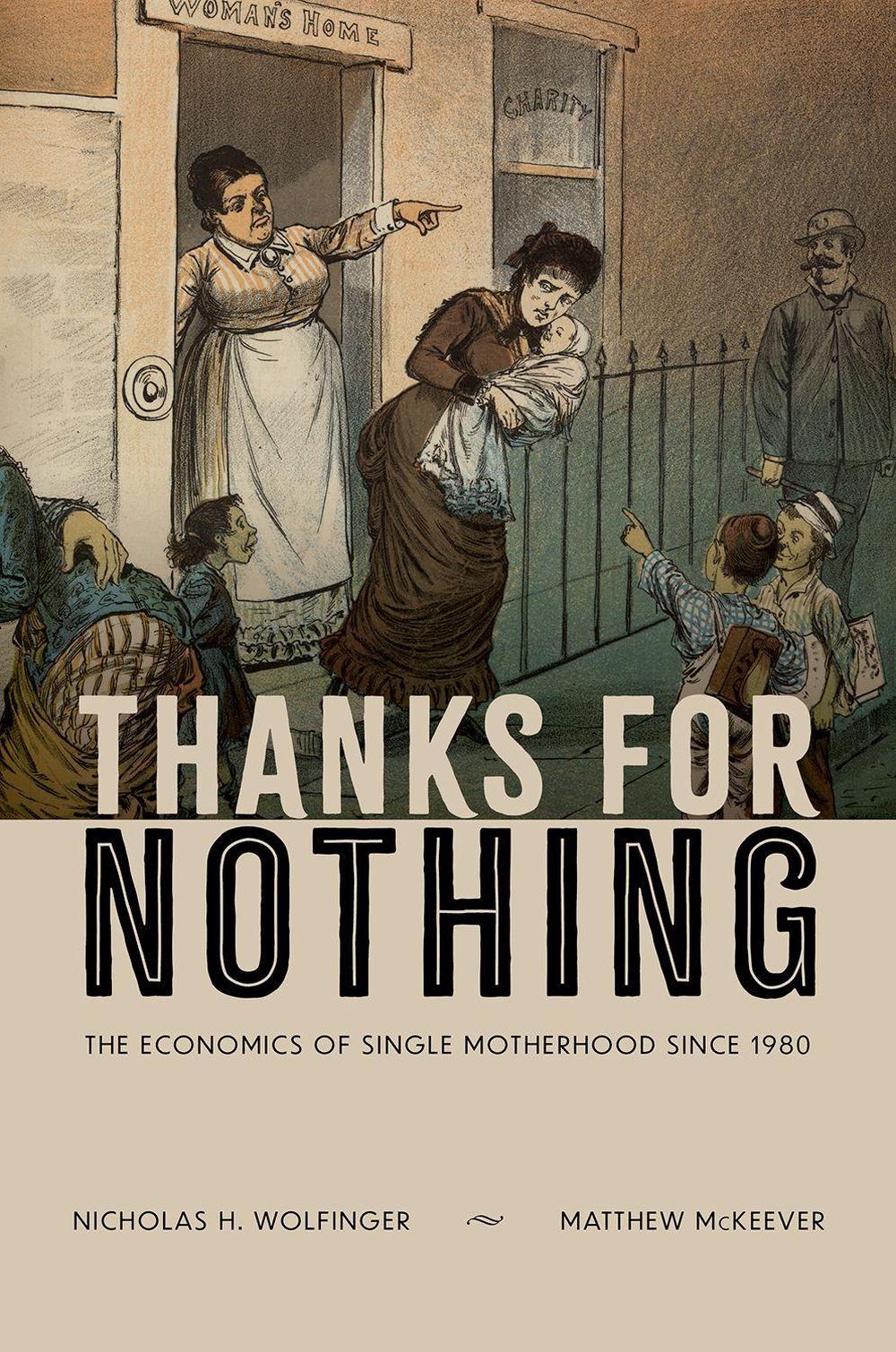
Thanks for Nothing
the economics of single motherhood since 1980
$120.75
- Hardcover
272 pages
- Release Date
8 February 2025
Summary
Thanks for Nothing: Unmasking the Economic Realities of Single Motherhood
In 1980, single mother families were five times more likely than two-parent families to be poor. Forty years later, single-mother families are still five times more likely to be poor. How can this be given the vast increases in education and employment achieved by American women over this period?
In Thanks for Nothing, Nicholas H. Wolfinger and Matthew McKeever explore the contradictions that …
Book Details
| ISBN-13: | 9780199324323 |
|---|---|
| ISBN-10: | 0199324328 |
| Author: | Nicholas H. Wolfinger, Matthew McKeever |
| Publisher: | Oxford University Press Inc |
| Imprint: | Oxford University Press Inc |
| Format: | Hardcover |
| Number of Pages: | 272 |
| Release Date: | 8 February 2025 |
| Weight: | 513g |
| Dimensions: | 239mm x 165mm x 27mm |
What They're Saying
Critics Review
A must-read for anyone concerned about the crisis of child poverty in America, whatever their views about ‘family values’ and the interpersonal benefits (or not) of getting and staying married. * Stephanie Coontz, Author of The Way We Never Were: American Families and the Nostalgia Trap *This book is a tour de force for understanding the economic disadvantage of single mothers over the past forty years. I have no doubt it will become a classic in the study of single motherhood and will be a compelling read for anyone concerned about families, economics, and public policy! * Marcy Carlson, Sewell-Bascom Professor of Sociology and Associate Dean of the Graduate School, University of Wisconsin, Madison *How have the economic circumstances of single mothers changed over the past four decades? In this elegantly written and lucid monograph, Wolfinger and McKeever carefully trace single mothers’ economic wellbeing over a forty-year time span. The analyses are thoughtful, and discussion of results and policy options is refreshingly balanced. This book will be of substantial interest to those concerned with the past and present economic precarity of single mothers and their children. * Pamela J. Smock, Professor of Sociology, University of Michigan *Even though women have made dramatic gains in education and work in the last half century, one group of women has not seen their financial fortunes much improve: single mothers. In Thanks for Nothing, Wolfinger and McKeever explain how declines in divorce and rising rates of never-married motherhood combine to help explain the continuing economic stagnation of single mothers. This masterful and measured book paints an invaluable and well-written financial picture of single motherhood in America today. * Brad Wilcox, Professor of Sociology and Director of the National Marriage Project, University of Virginia *In a world where fact and opinion frequently overlap and even social science research may feel somewhat agenda-driven, Thanks for Nothing is a straightforward, valuable tool. With clear prose and deep, consistently high-quality analysis, Wolfinger and McKeever sort fact from fiction when it comes to family structure and what it portends. Anyone interested in the factors that help families thrive or hinder them will find useful data that’s easy to understand within these pages. * Lois M. Collins, Deseret News *
About The Author
Nicholas H. Wolfinger
Nicholas H. Wolfinger is Professor of Family and Consumer Studies and Adjunct Professor of Sociology at the University of Utah. He is the author or editor of five books, as well as 40 articles and chapters. His work has been published in The Atlantic, National Review, Huffington Post, and other outlets.
Matthew McKeever is Professor of Sociology and Department Chair at Haverford College. His research focuses on the structure of social inequality within a variety of institutional, cultural, and regional contexts. This work examines different theories regarding the distribution of education, occupation, and income, and how processes that determine the distribution of these resources vary regionally.
Returns
This item is eligible for free returns within 30 days of delivery. See our returns policy for further details.




